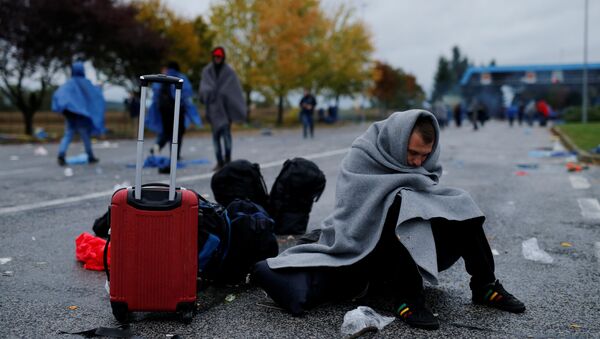The amendments would give authorities the ability to adopt special measures to deny entry to people arriving at Slovenia's borders, and automatically expel migrants and refugees entering Slovenia illegally without assessing their asylum claims.
The changes are intended to prevent a repeat of the six-month period between September 2015 and March 2016, when around 500,000 illegal migrants crossed Slovenia on their way to Western European countries.
At a press conference, Interior Minister Vesna Gyorkos Znidar said Slovenia would not be able to withstand another migrant flow of that kind, especially as neighboring Austria and other west European states had now closed their doors to migrants.
"The new legislation will be used only if migration endangers the public order and internal security of Slovenia," she said.
Znidar added that the government would establish a special Office for Migration in response to surging asylum requests, which rose five-fold in 2016. In the first 11 months of that year, Slovenia received 1,170 requests, of which 148 were approved and 230 are still being processed.
Amnesty International slams Slovenia’s new anti-migration law https://t.co/lbUplCVCJj via @EurActiv
— amnestypress (@amnestypress) January 6, 2017
The proposals are yet to be accepted by Slovenia's parliament, but even if they are, they may be subject to legal challenge. Gauri van Gulik, deputy director of Amnesty International Europe, told Sputnik the proposals denied refugees and asylum seekers protections they are to entitled under international and EU law — and significantly increase the risk of migrants being tortured or persecuted upon their return to their home countries.
"Stripping people of their right to claim asylum and turning them back at the border is a breach of international and EU law. Authorities should recognize their responsibility to protect people in search of safety. The bill resembles similar efforts by Slovenia's neighbours to seal their borders to those fleeing horrors of war. It rides roughshod over the right that every individual has to ask for asylum, and the obligation Slovenia has to fully assess each claim," van Gulik told Sputnik.
She adds that rejecting an asylum seeker or a migrant at the border without due process and consideration of their individual circumstances is a defined as 'pushback', and is prohibited in all circumstances under EU and international law.
"Further, the measures do not include sound safeguards against the risk of asylum seekers being returned to a country where they could be exposed to torture and ill-treatment. For example, migrants and asylum-seekers denied entry to Slovenia could be returned to Serbia or Bulgaria where reception conditions are inadequate, or Hungary which flagrantly ignores EU and international law.
"The government claims people whose lives or health would be in danger would be excluded, but how would the government even identify these people if it circumvents proper assessments altogether?"




